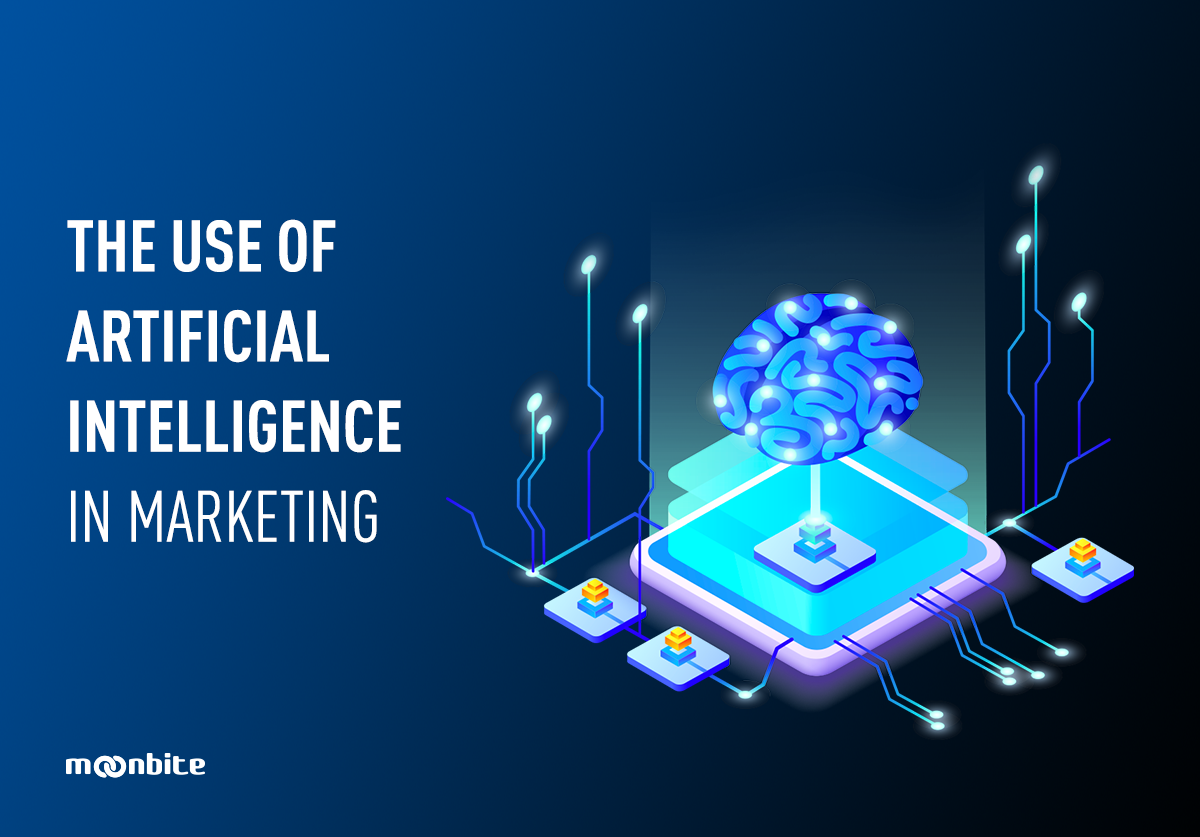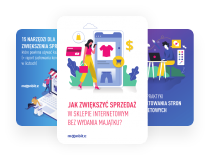The use of artificial intelligence in marketing
A couple of years ago an Artificial Intelligence was a thing that most people were associating with dystopian and superhero genre of films and literature. However, now it is a reality. Today AI is used in various industries – from healthcare to finances to programming. It also has a lot of uses in marketing.

First of all, artificial intelligence is a simulation of human intelligence performed by the machines. They are able to “learn” by gathering the information and the ways to use it and to correct themselves. The most known AI example is Siri, the virtual assistant developed by Apple. To set up Siri you need to record your voice a couple of times, so it can “learn” how you sound like to be able to answer any time. Also as you “communicate” with the virtual assistant, it starts to understand you more and gives you a better-matched response.
Virtual assistant is a simple form of an Artificial Intelligence system. More complex ones are used to find solutions without human interference. It could be a system that recommends the product based on the customers’ preferences or makes the diagnosis after analyzing the list of symptoms. The AI system processes the information much faster than a human which is the most important advantage of the technology.
Artificial Intelligence in marketing
Product recommendations
Customers often see the recommendation as a piece of personalized advice rather than the result of data analysis. In the world jammed with abundant of offers, it is hard for users to find exactly what they want and product recommendations make it easier for them to find the right good.
Usually, product recommendations rely on machine learning algorithms to deliver the best results to customers. AI gathers the available information about the users and presents them the most appropriate product it “thinks” they would like. The big players like Amazon, Netflix and YouTube are using advanced algorithms to make their customers consume more.
Netflix, for example, uses the AI to change the thumbnails of the movies and series to increase the chances of the user clicking on it. Based on the previous watch history, thumbs up and thumbs down the algorithm will show the user a different picture to make the movie or series more appealing. The service has several options of thumbnails to choose from and can even show two different versions for the user if their watch preferences change.
By personalizing product recommendations companies make sure that customers would buy more, watch more, consume more. Statistics show that sales from product recommendation make up 31% of online stores’ revenues. The AI allows making the recommendations as relevant as possible to make the user experience better and improve the conversion rate.
Data Analytics
When it comes to analytics machine learning can be very helpful as it can go through data and interpret it in a fraction of a second. It allows marketers to learn more about the behavior of their potential clients to better plan their campaigns and content publication. AI draws out patterns from databases that are defined by specific rules which helps to uncover new opportunities of reaching customers.
Marketing department usually collects a lot of information about both existing and potential clients that is useful for creating strategy and planning campaigns. Thanks to the data analysis marketers can understand why users chose to interact with one piece of content and not the other. Without the specific software, it would take days to go through all the data and draw some conclusions. The development of the technology allowed to optimize the data analysis process and make it easy enough so it can be used in day to day work.
Chatbots
Another use of AI in marketing is chatbots. They allow keeping the conversation with customers 24/7 without much assistance from the real human. The advanced technology can recognize what users are typing and “come up” with the response adequate to the question. The AI used in chatbots can be so “smart” that it is hard sometimes to distinguish if the customer service operator is a human being or a machine.
AI chatbots help to handle simple conversations that are aimed at gathering the information about the issue so it would be easier for the real employee to solve the customer’s problem. It allows saving time by letting the machine deal with users that are only looking for some information. The other advantage is that customers that want to ask one question don’t need to wait long for the answer – chatbots reply within a minute.
With the adoption of machine learning technology marketers can make their actions more efficient and content more tailored for the tastes of the potential clients. In today’s world, users expect unique offers from the companies and AI can provide that by collecting the data, interpreting it and communicating with customers on behalf of the company.


